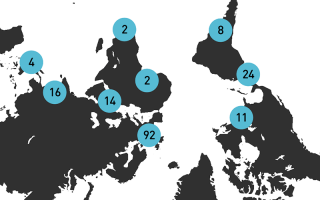Jon recounts his experiences of studying MSc Urban Economic Development at the Development Planning Unit.
One of my primary motivations for enrolling at the DPU, was a desire to better utilise the analytical skills gained during my bachelor’s degree, in a field where I had interest – urban planning and regeneration.
I had previously achieved a BSc in Economic History with Population Studies from the London School of Economics, and UCL seemed like the ideal institution to continue my academic studies. My previous work experience was gained working at Transport for London, which had a great impact in nurturing my interest in urban planning. I am originally from the town of Aberdare in South Wales.
The Urban Economic Development course had a great appeal to me from the outset. The modules in my program of study not only gave me a solid grounding in the theory and principles behind urban economic development, they also provided the opportunity to apply my knowledge in a more practical sense.
Upon graduation from DPU, I was fortunate enough to secure the position of urban regeneration consultant at one of the world’s leading environmental consultancies – URS Corporation - where I have been working for the past two and a half years. During this time I have been involved in a broad range of strategic planning and socio-economic analysis related work.
My experience has included core involvement in the delivery of Local Development Framework (LDF) evidence base studies for local authorities in London. Primarily, this has involved the preparation of Employment Land Reviews (ELRs), which are local studies of the supply and demand for office and industrial land, which advise on the provision for the future supply of this land to 2026/31 – the Mayor’s London Plan period. The culmination of these studies is the drafting of recommendations to be taken up by the councils in their statutory Core Strategy Development Plan Documents.
Aside from this, I have also had input into the preparation of Strategic Infrastructure Plans, which are also key LDF evidence based studies. This involves research to develop a baseline picture of supply of education, health facilities etc. Future requirements are then calculated through synthesising projected population growth against accepted provision standards, and presented in a plan
Outside of public sector consultancy work, I have also undertaken work for some of the country’s leading developers. This has largely been manifested through the completion of socio-economic analysis within environmental impact assessments (EIAs), which are then fed into planning applications for large mixed-use developments. Some of the high-profiles schemes I have worked on include the redevelopment of Battersea Power Station and the Chelsea Barracks site.
I have found many of the skills I acquired in the UED program invaluable in my day-to-day working life and career development, particularly effective report writing, theoretical appreciation, presentation giving, and critical analysis. The Thames Gateway case-study has been of particular use, given that much of my work has been for boroughs in this part of London, namely Newham, Tower Hamlets and Waltham Forest. My career is incredibly challenging, but is thankfully as interesting a challenge as studying at the DPU was!
Finally, given the need to ensure that my work planning for London’s future fully embraces its wide cultural diversity, learning within the marvellous cultural melting-pot of the DPU has undoubtedly stood me in great stead in this respect! Thanks again to the tutors and fellow students that made my experience such a positive one.
Linkedin - https://www.linkedin.com/in/jonathan-howells-9721b924/
 Close
Close


